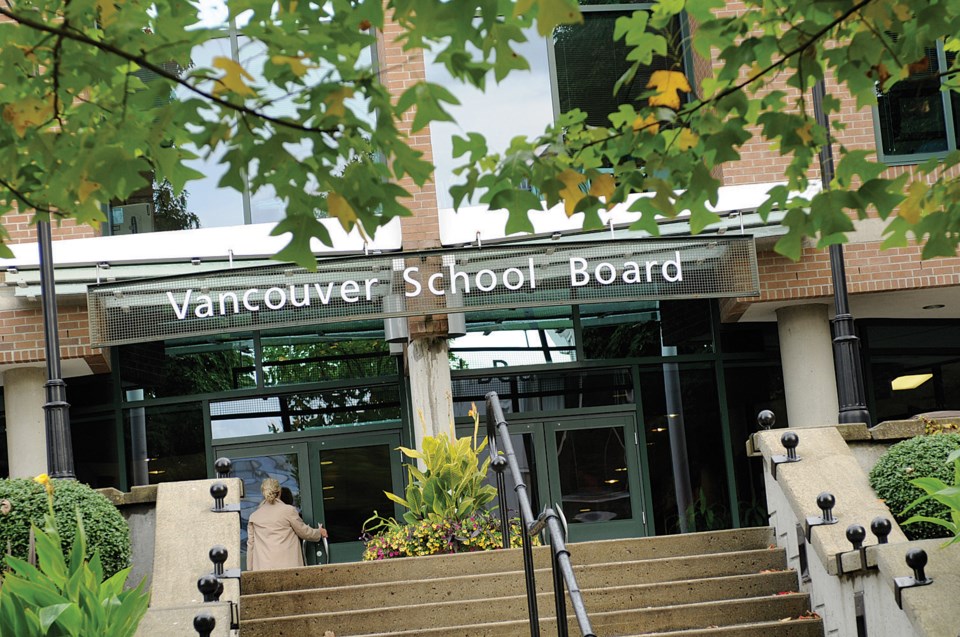Senior Vancouver School Board staffers who booked out a month ago on medical leave are beginning to trickle back now that the board has been fired. It reminded me that while comparisons have been drawn between this move by the provincial government to bump off an elected board with the firing that happened in Vancouver 20 years ago, there is one major difference.
Back then, as a couple of those fired trustees now recall, there was no apparent staff dissatisfaction with the way they were being treated. What we saw this time was a revolt of sorts by a half dozen of the most senior in their ranks going on medical leave. Nor was there any concerted effort then by the organization representing school superintendents, school secretary-treasurers and other school boards across the province weighing in on the provincial government’s side.
While the provincial government-appointed trustee back then produced a report once he was on the job, there was no special advisor appointed by the province while the board was still in place — in this case former deputy minister of finance Peter Milburn — nor was there an extensive audit, as in this case by Ernst and Young.
You can blame all that provincial care and attention this time around on the proximity of an election if you choose. Call it “political” if you must, saying the government was just looking for reasons to justify knocking off the board.
But for starters, do note the evidence that the most recently dumped board had some major gaps in its governance process.
As Milburn pointed out, regarding the evaluation of their most senior employee, “after a careful study of the past seven years, this review has only been able to obtain one performance review of a Superintendent (2011), which appears to have been a self-evaluation.
“The current Superintendent has not received any performance expectations or reviews in the 18 months he has been on the job, despite the fact that his contract requires a performance review to be completed after one year. It appears the Board does plan to conduct a performance evaluation on the Superintendent in the early part of 2017, which would be almost two years after starting in the role.”
It is a basic truism of governance that what you don’t measure you can’t manage. That goes for the board’s failure to measure its own performance, including its strengths and weaknesses, when it came to the skills required to be effective stewards of the Vancouver school district.
You could say the most recent board had difficulty reaching agreement, split these past two years with four Vision trustees and four NPA trustees and the Green Party trustee, a frequent switch hitter. They were more into beating each other up than helping each other out.
But for the previous six years, Vision held a firm majority with the politically popular Patti Bacchus in the chair.
So there would have been no impediment to implementing those evaluation processes as some other boards, boards that had trustees running on party slates, were able to do.
The majority were, however, more interested in pursuing their role as “advocates,” playing to their supporters and demanding more funding from the province, than they were acting as stewards of the system. Don’t we have among the lowest per-student funding for education of any province in the country, they argued.
The Vancouver School Board over that period of time, however, also failed except once to come up with a strategic plan. And even then, that plan was apparently never held up for assessment against what the organization actually accomplished.
As far as balancing the budget goes, they failed there, too, rejecting suggestions that were ideologically unpalatable to improve revenues and cut expenses. For three years, expenses outstripped revenues and the board only managed to balance its books by drawing down on previously accumulated surpluses.
It was just a matter of time before they ran out of that extra dough.
While all the other provincial boards managed to govern themselves and their resources in ways that would satisfy their legislated requirement to pass a balanced budget, the majority of Vancouver trustees chose to stall. They chose to make their point as “advocates” while governing in a way that alienated their most senior staff in the process and got themselves fired for good reasons.
@allengarr



